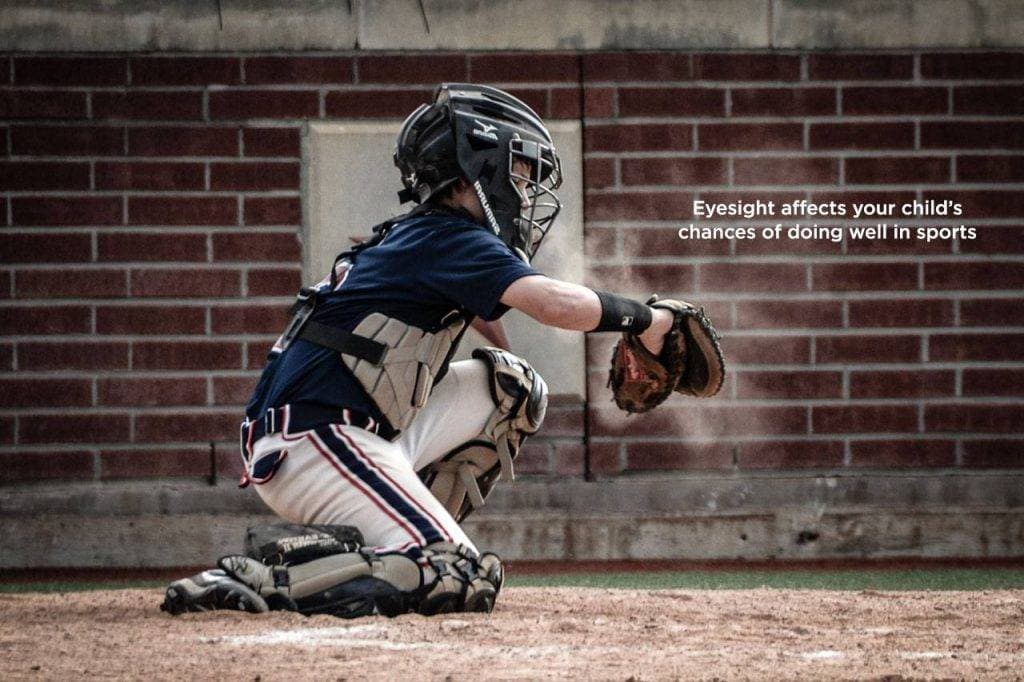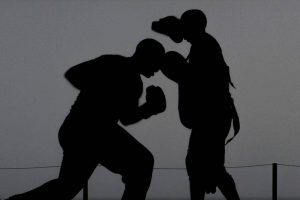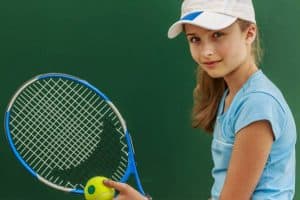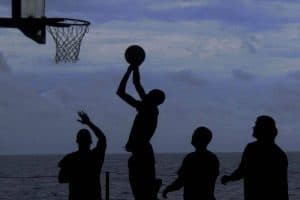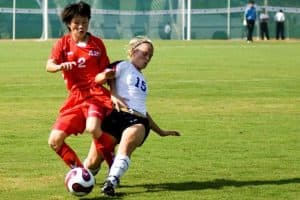If you think that hitting that 100 mile per hour fastball out of the park is all about athletic genes or natural abilities, what you may not realize is— your visual skills can actually affect your performance on the diamond.
In this article we will discuss the different visual skills needed for optimal baseball performance, and concentrate on each visual skill, as it pertains to specific aspects of baseball.
Baseball is a sport that involves many different skills: the ability to pitch or throw, catch, swing a bat, and run fast. Professional baseball players are generally able to successfully perform each of these skills, and depending on their position, may be more adept in one specific skill— one that they become well known for. For example, the famous Babe Ruth was widely recognized for his batting record, and the equally famous Nolan Ryan was widely recognized for his pitching record.
Visual skills are necessary for optimal baseball performance. However, while many visual skills are required to successfully play the game, some visual skills are specific to certain aspects of the game. For example, the visual skills needed for batting are different than those required for pitching, catching, and running through the bases.
Contact a vision therapy eye doctor to evaluate which visual skills you need to improve for optimal baseball performance.
Which visual skills are essential for optimal baseball performance?
- Eye tracking
- Eye focusing
- Eye teaming
- Anticipation timing
- Visual reaction timing
- Visual concentration
- Visualization
- Depth perception
- Dynamic visual acuity
- Eye hand coordination
- Peripheral awareness
Eye tracking
Eye tracking is one of the most important visual skills needed for baseball. This visual skill allows you to keep your eyes on the ball at all times, without moving your head. Eye tracking is essential for following the baseball as it flies through the air.
Strong eye tracking skills will allow the batter to accurately judge the position of the ball as it speeds towards him at over 90 miles per hour.
Eye tracking is also necessary to follow the path of a high ball to ensure you’re in the correct position to catch the sailing ball. Eye tracking is also important for the basemen to know the position of the players as they run between bases — enabling a quick response in reaction to the situation.
Eye focusing
Eye focusing is just as important as eye tracking— they basically go hand in hand. This visual skill allows you to change focus quickly and accurately between two distances (near and far)— from the coach’s instructions, to your fellow batters stealing bases, and to the pitcher at a distance as he starts his wind up.
Eye focusing allows the batter to see the stitches on the ball, and to recognize a fast ball from a knuckle-ball— enabling that perfectly timed swing.
Eye teaming
Eye teaming allows your eyes to work together, in coordination, with proper alignment. This visual skill is essential for consistent performance, including swinging the bat in a timely manner, and throwing the ball with accurate perception of the distance to its destination.
Anticipation timing
Your visual system provides the necessary information for judging when to act, as well as the upcoming action itself. This skill is essential for baseball, as any response or reaction within the game is dependent on your ability to anticipate what will happen next.
When you are at bat and your fellow batter suddenly tries to steal base, it is your quick anticipation that will allow you to change to a bunt, allowing him to easily complete the steal.
The key element here is anticipation, however your visual reaction time and your depth perception abilities will dictate how well you perform the tasks.
Contact a vision therapy eye doctor, to evaluate your vision and plan the best vision therapy program for you.
SEE RELATED: Vision for Boxing
Visual reaction timing
Visual reaction timing allows you to process, interpret and react to an action performed by your teammate or opponent, in an appropriately timed manner.
This visual skill is essential for reacting to a fellow fieldsman heading for the same catch, allowing one of you to successfully make the essential catch.
Eye-hand coordination
Eye-hand coordination allows you to react to incoming visual information with accurate body movements. This skill is essential for baseball because it enables accurate timing and control over body movements, such as swinging the bat at the precise moment, throwing the ball to a teammate standing on base to prevent the opposing player from safely reaching the base, and catching or fielding the ball.
This skill is vital to make that ‘one in a million’ catch at the bottom of the 9th inning.
Visualization
Visualization allows you to imagine yourself succeeding, while at the same time concentrating on something else. Visualizing or imagining a movement in your mind prepares your muscles to perform that exact movement. According to research, the areas of the brain that light up during performance, also light up when a person visualizes the performance.
This skill is essential in baseball as it enables the pitcher to visualize the perfect slider, fastball, or curve ball, and for when you are up at bat and can imagine hitting a homerun, while concentrating on the ball.
Visual concentration
Visual concentration allows you to maintain focus on an object or play, with the presence of distracting factors in your visual field. This skill allows you to focus on the game, specifically when spectators are reacting or cheering around you, if a player is trying to steal a base while you are about to pitch the ball, or the timer on the scoreboard is approaching the end of the period.
Visual concentration will allow you to stay focused on the game, even though the crowds may be noisy and distracting.
Dynamic visual acuity
Dynamic visual acuity allows you to see moving objects clearly. This skill is essential for baseball, for the ability to clearly see the ball and other players while you and the other objects are in motion.
This visual skill helps you to decide how to adjust your swing of the bat to meet that slider or knuckle ball and achieve that all important home-run.
Depth perception
Depth perception allows you to quickly and accurately judge the speed and distance of objects. This skill is essential for estimating the location of the ball, teammates, opponents, bases, boundary lines, and other objects. Depth perception helps your brain to perceive where the ball is, in order to help you swing the bat at the precise moment— if your brain perceives that the ball is close, your will swing too early, if your brain perceives that the ball is father, you will swing too late.
Depth perception allows you to judge the arc of the ball as you try to catch it overhead, or throw the ball accurately.
This visual skill also helps you to recognize the speed of a fastball or spin of a curve ball just as it leaves the pitcher’s hand, giving you extra time to plan accordingly.
Peripheral vision
Your peripheral vision allows you to see everything around you, without turning your head. This visual skill is essential for baseball performance to help you ‘see’ the whole game, and how the ball and players move within the game.
Peripheral vision is vitally important for deciding when to run to the next base, slide into home, or where to throw the ball.
What can I do to enhance my baseball skills?
If you are an enthusiastic baseball player, but are struggling to perform to your athletic potential, you may have a problem with your visual skills.
The good news is, with vision therapy, you can retrain the connections between your eyes and brain to strengthen your visual skills, and enhance your baseball performance.
LEARN MORE: Guide to Sports Vision
Schedule an appointment with an eye doctor for a thorough evaluation of your vision and visual skills. Your doctor will determine which skills require strengthening, and can prescribe a program of vision therapy to help you gain confidence in your baseball skills.

